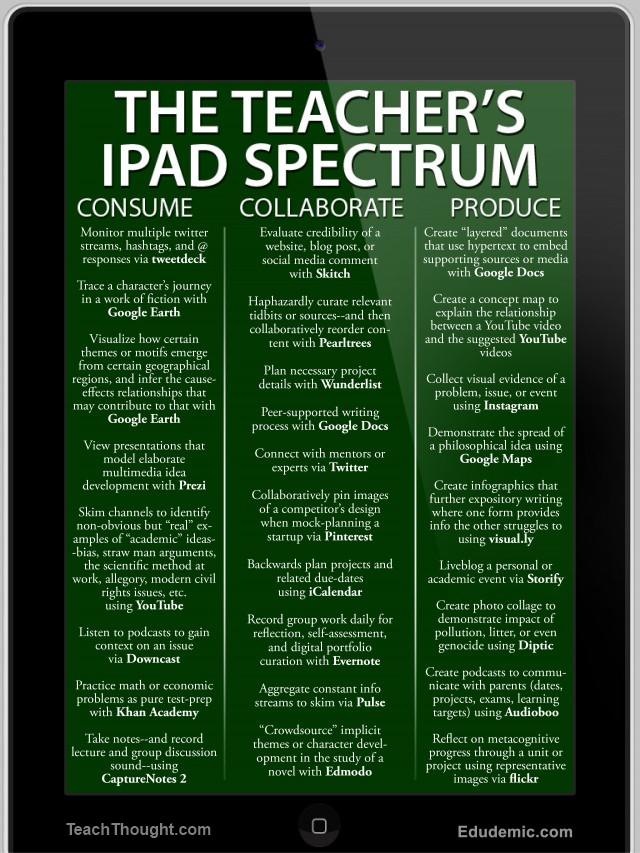Why do we question 1:1 effectiveness?
 Friday, July 11, 2014 at 05:20AM
Friday, July 11, 2014 at 05:20AM In his blog post Asking the Right Questions for Getting School-Driven Policies into Classroom Practice, professor Larry Cuban writes:
Let’s apply these simple (but not simple-minded) questions to a current favorite policy of local, state, and federal policymakers: buy and deploy tablets for every teacher and student in the schools.
1. Did policies aimed at improving student achievement get fully implemented?
2. When implemented fully, did they change the content and practice of teaching?
3. Did changed classroom practices account for what students learned?
4. Did what students learn meet the goals set by policy makers?
Take-away for readers: Ask the right (and hard) questions about unspoken assumptions built into a policy aimed at changing how teachers teach and how students learn.
The answers Cuban gives to each of these questions more or less boils down to: it depends, we don't know, and we can't tell.
Dr. Cuban, the ship has sailed on asking questions like this about 1:1 projects. Technologies, like tablets or smart phones or netbooks or whatever, have become for an increasing percentage of society so embedded in daily life that completing any information-related task or personal learning effort relies upon these "external brains" for a growing segment of parents, teachers, and especially, students.
We don't need to question the if or why of these devices that provide ubiquitous access to information - written, visual, and human - any more than we question whether the old technologies of paper, pen, and print are effective teaching tools. They are simply what our society uses to record, access, manipulate, and communicate information. And it is the application of the tool, not any inherent value of the tool, that should be assessed. (Which tool makes a student a better writer: a number 2 pencil or a ball point pen?)
And as the cost of these devices drop, Internet access becomes more widespread, applications become more powerful and less complicated to use, the remarkability of personal technologies in the classroom will decrease - and we can get back to measuring the efficacy of pedagogy rather than silicon.









Reader Comments (2)
Doug - meet DJ, a write whom I have followed for most of my ed-tech career: http://doug-johnson.squarespace.com/blue-skunk-blog/2014/1/29/10-questions-parents-should-ask-about-their-childrens-11-pro.html
He is wise and has influenced those of us in the profession in ways subtle and profound.
In that post, DJ shows concern for his Grandson's school's 1:1 initiative and in his first question asks the about the teaching and learning outcomes and how they will be measured. He encourages all parents to ask questions similar to these (and many get into the mechanics of doing 1:1 well). The last question is one that I think almost any segment of the population will have as long as technology costs something more than $0.00 - in that are we sure we are choosing the right places to spend dollars in schools. As long as that is a concern, it seems to me like people can and should challenge our views on why we are spending dollars there - meaning we need a good narrative.
If you have a problem with people questioning effectiveness - you should contact that DJ and ask him why he would do that.
Lastly - do not write a follow up chastising me for this. You can however, give me grief for stealing your PD coordinator.
Submitted with respect,
Joel VerDuin
Hi Joel,
Half the time I am not sure I believe what I write myself!
Doug